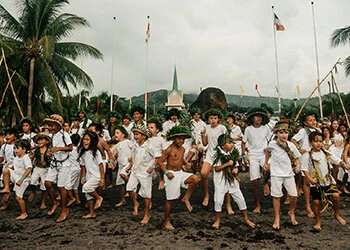
Hōkūleʻa Comes Home to Papeʻetē
On June 28, Hōkūleʻa and Hikianalia sailed into Papeʻetē to an emotional, high-energy welcome from thousands across Tahiti, Hawaiʻi, and beyond. They were joined by
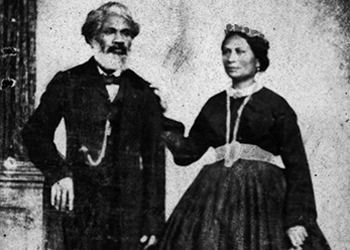
This story explores the hidden legacy of Native Hawaiian workers in the 1800s fur trade in the Pacific Northwest, from the picturesque islet of Salt Spring Island, British Columbia, down ...
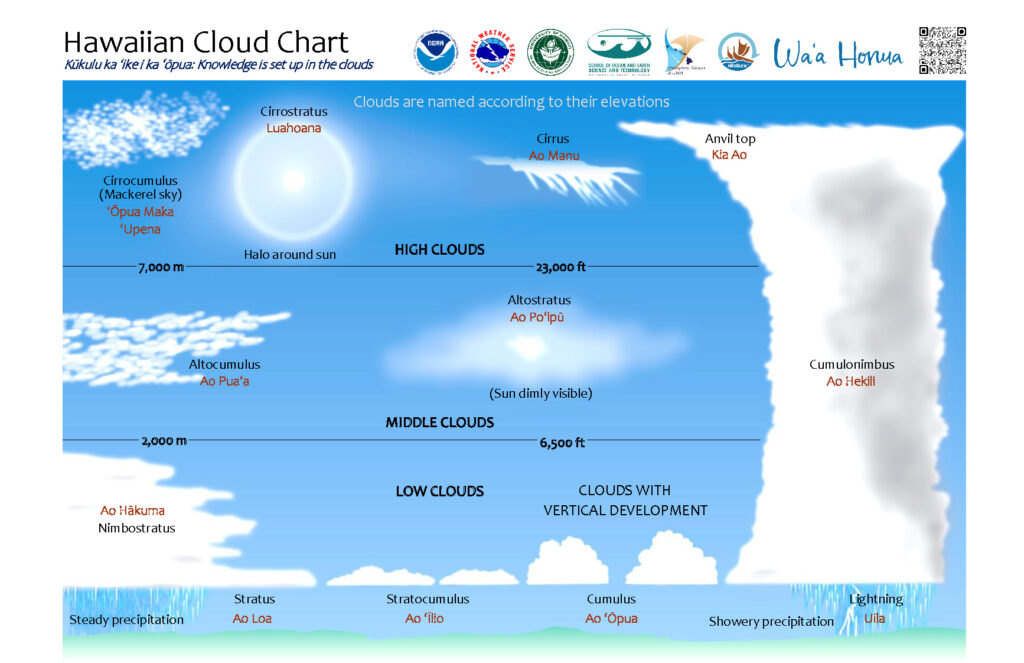
Kūkulu ka ʻike i ka ʻōpua: Knowledge is set up in the clouds. Wayfinders observe their natural surroundings and read environmental cues – such as the sun, stars, and wind ...
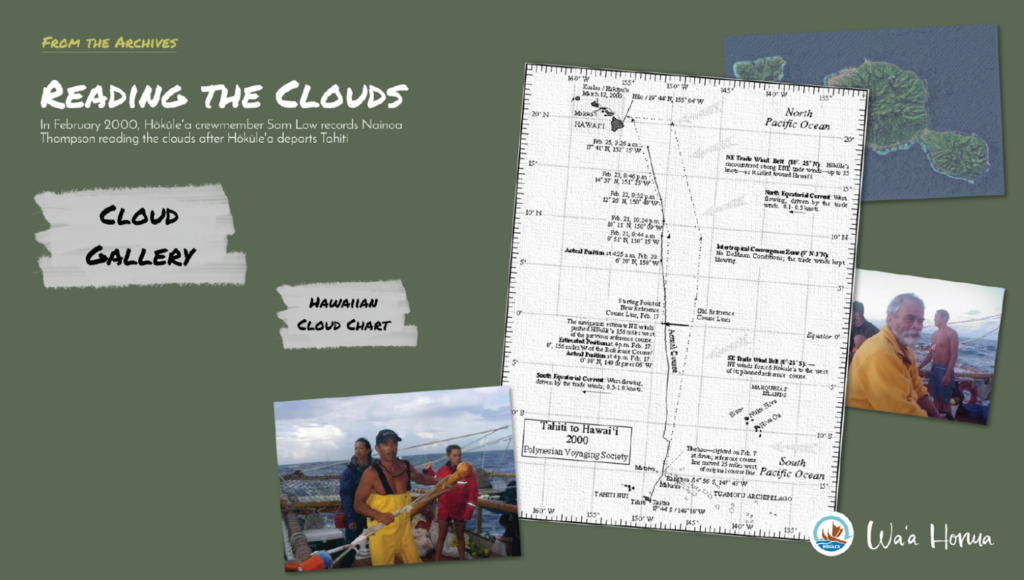
In our From the Archives series, excerpts from the journals, media, and historical records chronicling PVS’s rich history are revisited and augmented with updated learning resources for the Moananuiākea Voyage. ...
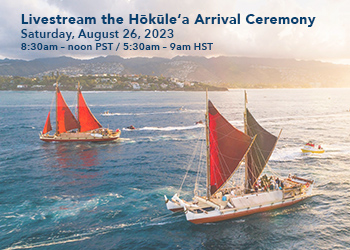
EVENT DATE: Saturday, August 26, 2023 WHEN: Saturday, August 26, 2023, 8:30am to noon PST (5am to 1:30pm HST)Please note arrival time subject to change based on weather and water conditions. WHERE: Pier ...
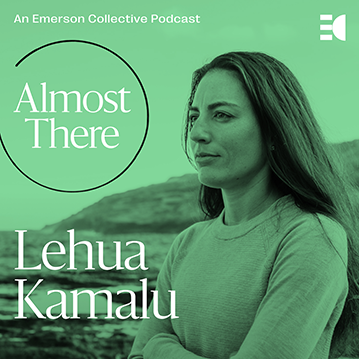
On this episode of the Almost There podcast, Hōkūleʻa captain and navigator Lehua Kamalu speaks with host Dwayne Betts about the valuable leadership lessons she has learned from captaining her team across thousands ...
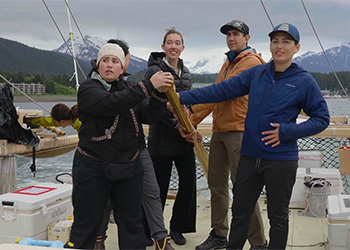
Before the Moananuiākea Voyage launches in June 2023, the Polynesian Voyaging Society is embarking on the Alaska Heritage Sail through the southeast region to pay homage to the Native Alaskan ...

On June 28, Hōkūleʻa and Hikianalia sailed into Papeʻetē to an emotional, high-energy welcome from thousands across Tahiti, Hawaiʻi, and beyond. They were joined by
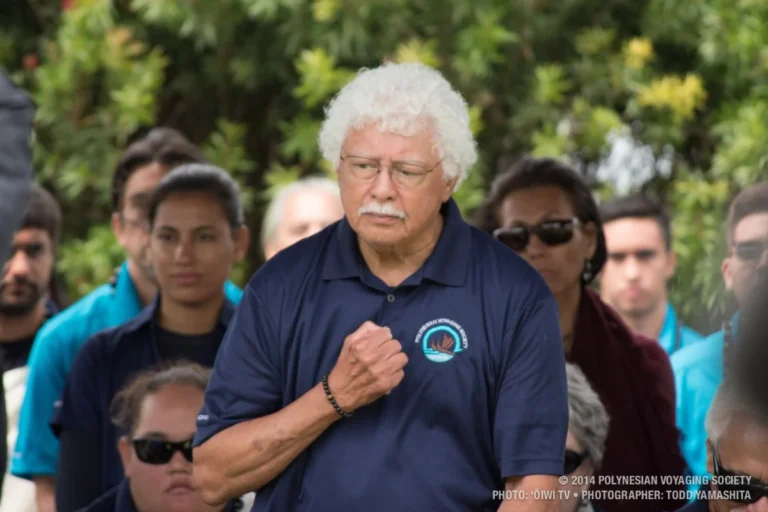
Gordon Piʻianaiʻa first sailed with Hōkūleʻa on its historic return voyage from Tahiti to Hawaiʻi in 1976 and continued to serve as captain on subsequent voyages, exemplifying leadership during the canoe’s foundational years. As an educator and director at Kamehameha Schools, he integrated Hawaiian navigation into broader educational efforts, ensuring the perpetuation of wayfinding traditions for future generations. His work bridged the canoe’s journey with classroom education, deepening its cultural impact.
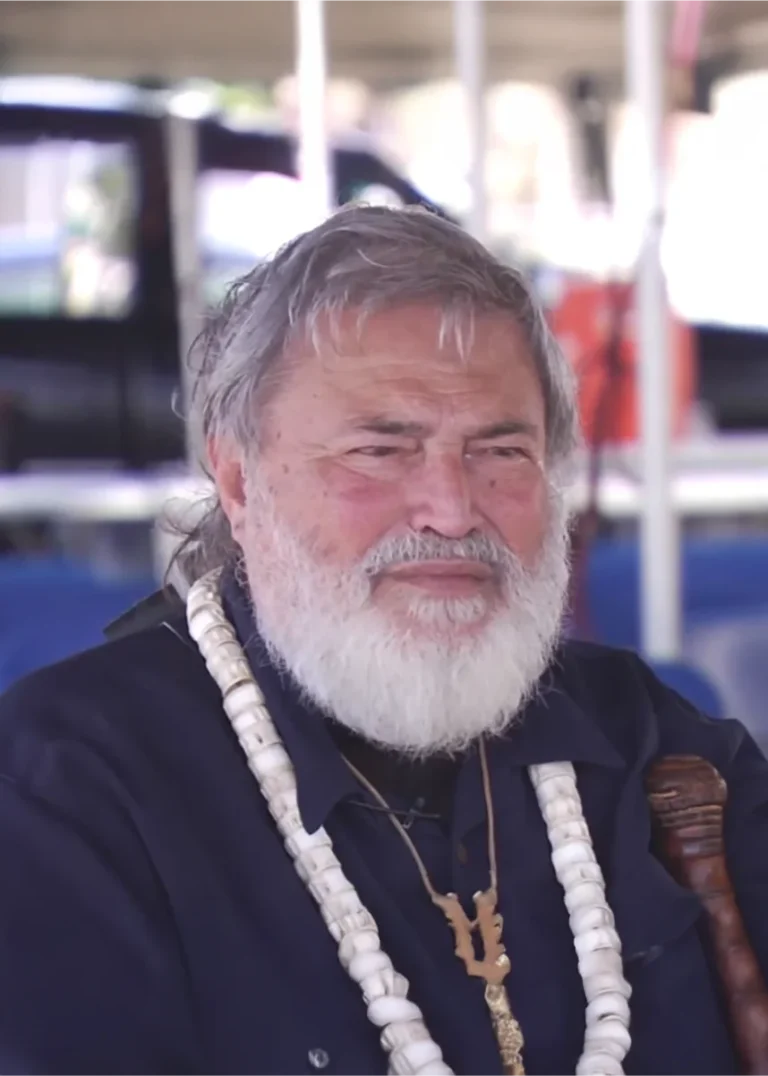
Sam Kaʻai, a master carver and cultural advocate, played an essential role in infusing Hawaiian spiritual significance into the voyaging canoe Hōkūle‘a by crafting its original ki‘i, or carved figurehead, symbolizing ancestral guidance. His contributions were central to representing the canoe as more than a vessel; they highlighted Hōkūle‘a as a symbol of Hawaiian pride, spirituality, and cultural resurgence. Through his artistry and dedication, Kaʻai’s impact helped connect the voyaging movement with the larger cultural revival of Hawaiian traditions and identity that Hōkūle‘a has come to represent.
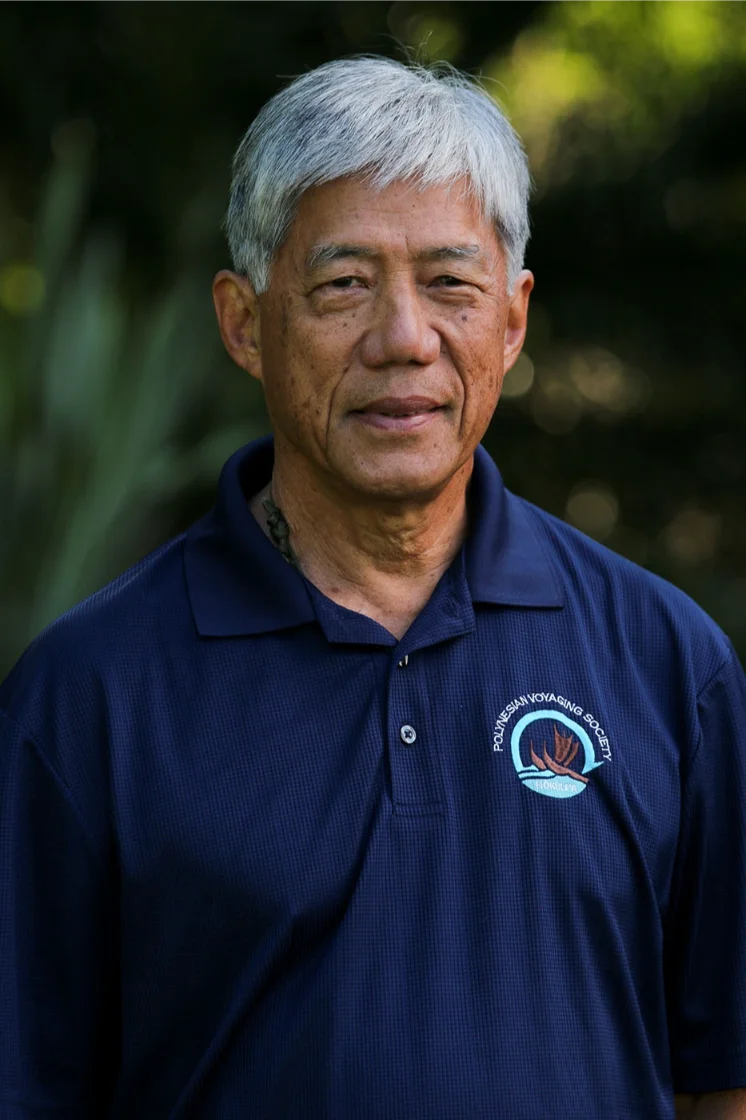
Nathan Wong serves as a board member of PVS and was actively involved in advancing the organization’s mission. As a medical professional and a steadfast crew member since 1980, his medical expertise and commitment to the health and safety of the crew have been essential to the success of numerous voyages, particularly during the Mālama Honua Worldwide Voyage, which promoted global environmental awareness.
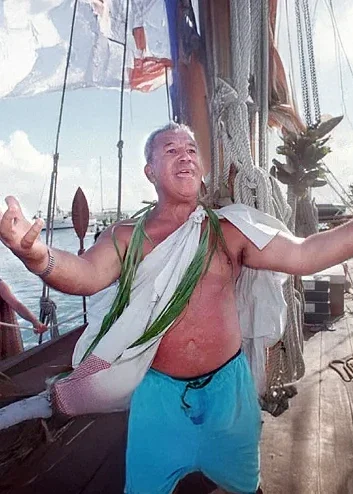
As Hōkūleʻa’s captain on her maiden voyage in 1976 and the first Hawaiian in modern history to lead a voyage to Tahiti, Kapahulehua’s exceptional leadership and navigational skill were instrumental in demonstrating the viability of non-instrumental navigation. His efforts helped inspire Hawaiian and Polynesian pride, contributing to the resurgence of voyaging and solidifying the canoe as a symbol of cultural resilience.
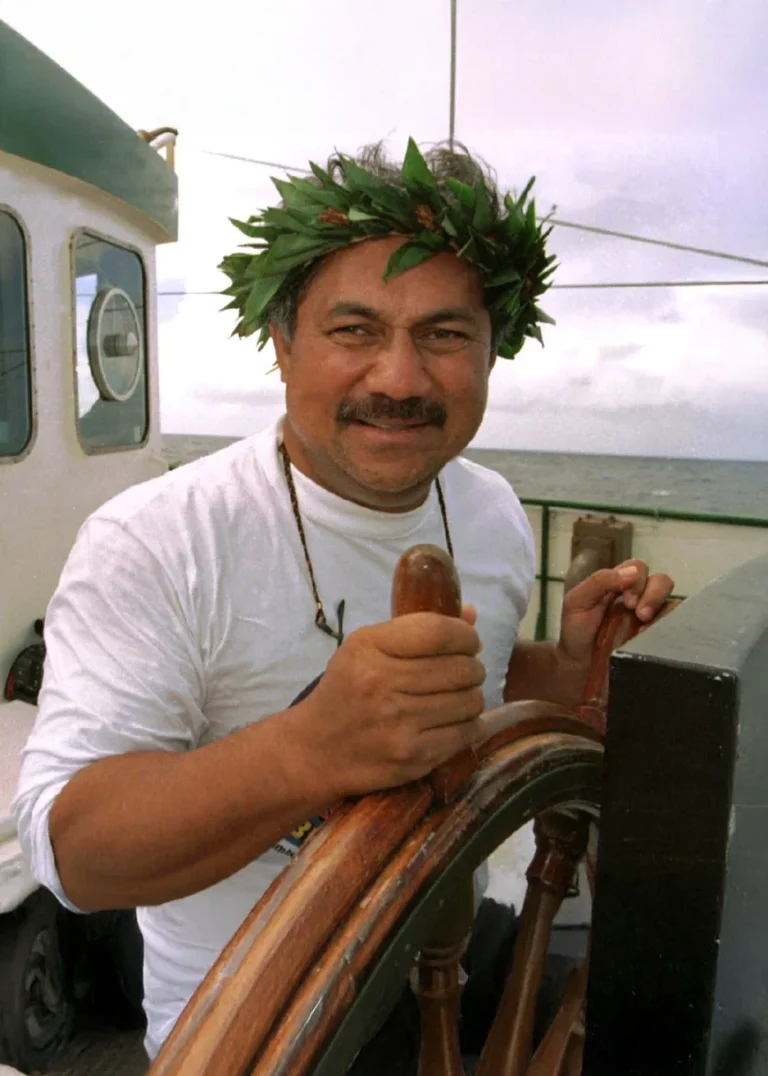
Faleomavaega Eni Hunkin championed Pacific Islander causes, serving as American Samoa’s delegate to the U.S. House of Representatives for over two decades. His advocacy amplified the importance of cultural preservation and education as awareness of traditional navigation and voyaging grew across the Pacific. In 1987, he was a crew member for Hōkūleʻa’s voyage from Tahiti to Hawaiʻi.
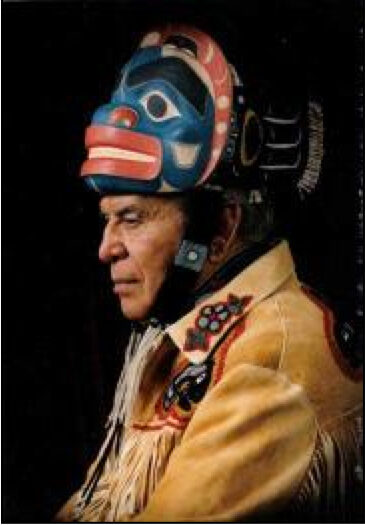
A Tlingit elder and Sealaska board chairman, Judson Brown played a pivotal role in supporting PVS during the construction of the Hawaiʻiloa canoe. His leadership helped secure the donation of massive Sitka spruce logs from Southeast Alaska, fostering a profound cultural exchange between Hawaiian and Alaska Native communities. This act of generosity symbolized a bridge of mutual respect and helped establish a sense of shared heritage for the decades that followed.
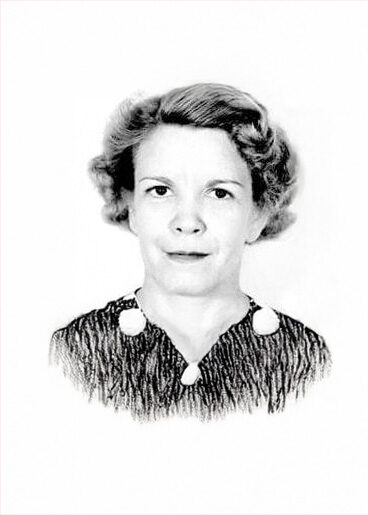
A respected scholar in Polynesian anthropology, Luomala’s extensive research and writings on Pacific cultures enriched the understanding and increased awareness of Polynesian voyaging traditions. Her academic contributions supported the broader cultural context that inspired and supported the revitalization efforts of PVS, reinforcing the ties between academia and living traditions.
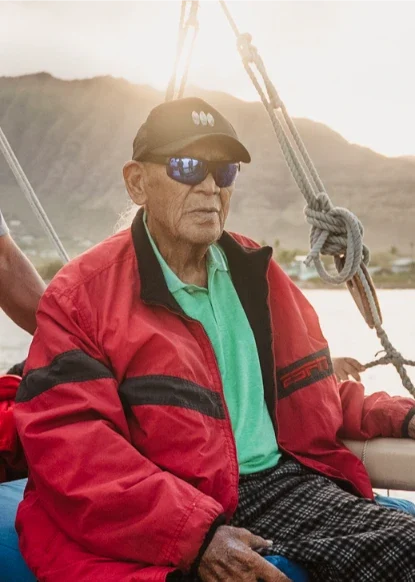
Buffalo Keaulana, affectionately known as “Uncle Buff,” played a pivotal role as an original crew member on Hōkūleʻa’s first historic voyage from Hawaiʻi to Tahiti in 1976. His presence on the crew served as a bridge between generations, inspiring younger navigators, including his grandson Noland, to uphold the voyaging tradition. Buffalo’s lifelong connection to the ocean reflects the unity between Hawaiian culture and the natural world.
✦ Rewatch the Livestream of the Arrival Ceremony in Pape’etē HERE ✦
